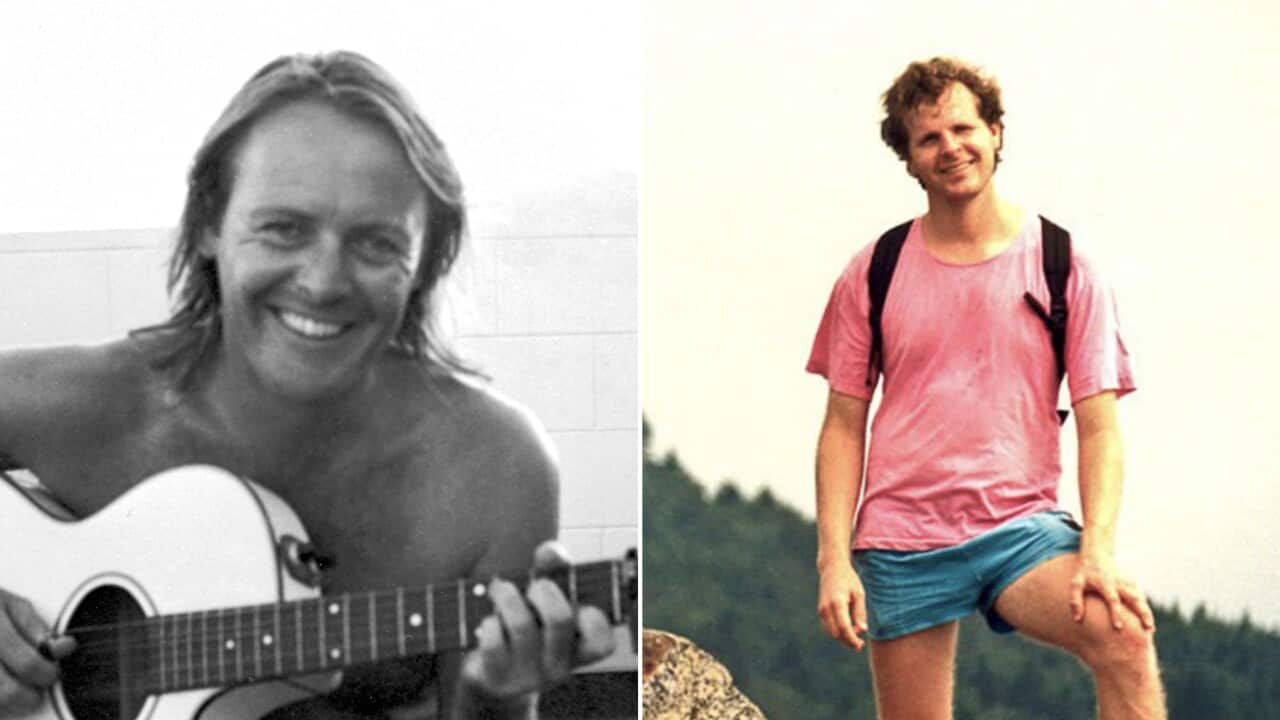Key Points
- An inquiry examined unsolved killings of LGBTIQ+ people from between 1970 and 2010 that may have been hate crimes.
- The inquiry's final report was released on Thursday after 18 months of hearings and investigation.
- The report recommended police undergo mandatory training about the LGBTIQ+ community and possible investigative bias.
NSW police need to rebuild trust with the LGBTIQ+ community after failing to properly investigate potential gay hate crimes over a period of decades, a landmark inquiry has found.
In many cases the response to victims and their families was indifferent, negligent, dismissive or even hostile, commissioner John Sackar said.
The inquiry examined unsolved killings of LGBTIQ+ people from between 1970 and 2010 that may have been hate crimes.
A final report, released on Thursday after 18 months of hearings and investigation, recommended police undergo mandatory training about the LGBTIQ+ community and possible investigative bias.
What did the inquiry find?
Sackar said it was confronting for all those involved to delve into the suspected homicides of 32 people, including many deaths that were "lonely and terrifying".
They included the deaths of , US mathematician Scott Johnson, newsreader Ross Warren and retired schoolteacher William Allen.
"Each homicide was suspected of being motivated, at least in part, by hatred for a person simply because of their identity," Sackar said.
"It was - and is - confronting to face the reality that, despite all efforts, many of these deaths remain unsolved."

Former AC/DC manager Crispin Dye's death was one of 32 suspected homicides investigated during the inquiry. Source: AAP / NSW Police/PR image
The inquiry found responses to the deaths of those perceived to be members of the LGBTQI+ community reflected the homophobia, transphobia and prejudice that existed within the NSW Police and society more broadly.
Many members of the LGBTQI+ community continue to live with the enduring trauma of violence, prejudice and bigotry, the inquiry concluded.
While NSW Police provided more than 100,000 documents to assist the inquiry, at many times the organisation acted in a way that was "adversarial or unnecessarily defensive", the inquiry concluded.
Families of many of those who died were crucial in pushing for further investigations into the deaths of their loved ones.
What are the inquiry's recommendations?
The inquiry recommended that every NSW unsolved homicide case spanning a 40-year period starting from 1970 should also be reviewed to identify cases that can be solved with forensic breakthroughs.
It also looked at whether police bias and indifference to attacks on gay people could have affected how the cases were investigated.
"In many cases, the immediate effect of violence was compounded by responses from the NSWPF, and from some of its members, who were indifferent, negligent, dismissive or hostile," Sackar said.
The inquiry report made several recommendations about NSW Police unsolved homicide operations, including calling for a review of the team's practices, procedures and resources.
Hearings revealed poor record-keeping practices by police with multiple examples of crucial evidence being lost, destroyed or misplaced over the years.

Sackar said in many cases, NSW Police Force members were "indifferent, negligent, dismissive or hostile" in their responses. Source: AAP / Bianca De Marchi
"In addition, I consider that the response of (police) to the inquiry was, at times, defensive and unhelpful."
The inquiry found NSW Police had failed in its responsibility to properly investigate cases of historical gay and transgender hate crime, undermining the confidence of LGBTIQ+ communities in the criminal justice system more broadly.
Police now face the task of rebuilding the community's trust, Sackar said.
How have the police and NSW government responded?
NSW Police said in a statement the organisation recognised past inadequacies from the outset and was committed to evolving its culture and practices.
Commissioner Karen Webb said police had made efforts since the 1990s to reassess and improve the way they responded to the concerns of the LGBTIQ+ community.
"While I cannot undo what has occurred previously, I give you my commitment today that (we are) determined to uphold the policies, education and training now entrenched in the practices of modern policing which did not exist 30 years ago," she said.
Chief executive of LGBTQI advocacy group, ACON, Nicolas Parkhill said an apology from police would only be meaningful when recommendations that materially change practices and access to justice have been implemented.
"(The report) makes clear the steps the NSW Police Force need to undertake to properly address this and ensure that healing and justice can begin," he said.
Premier Chris Minns said the government would take time to consider the report and its recommendations.
Attorney-General Michael Daley said the inquiry had shed light on some of the darkest events in the state's history and reopened wounds for many.
"We hope that in a small way this process will have provided some level of closure and healing," he said.
Readers seeking support with mental health can contact Beyond Blue on 1300 22 4636. More information is available at .
supports people from culturally and linguistically diverse backgrounds.
LGBTIQ+ Australians seeking support with mental health can contact QLife on 1800 184 527 or visit .
also has a list of support services. Intersex Australians seeking support can visit Intersex Peer Support Australia at .











